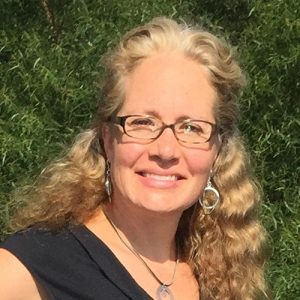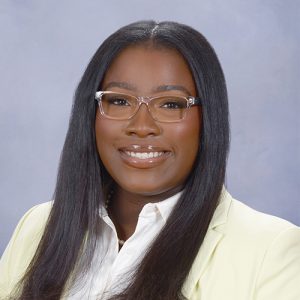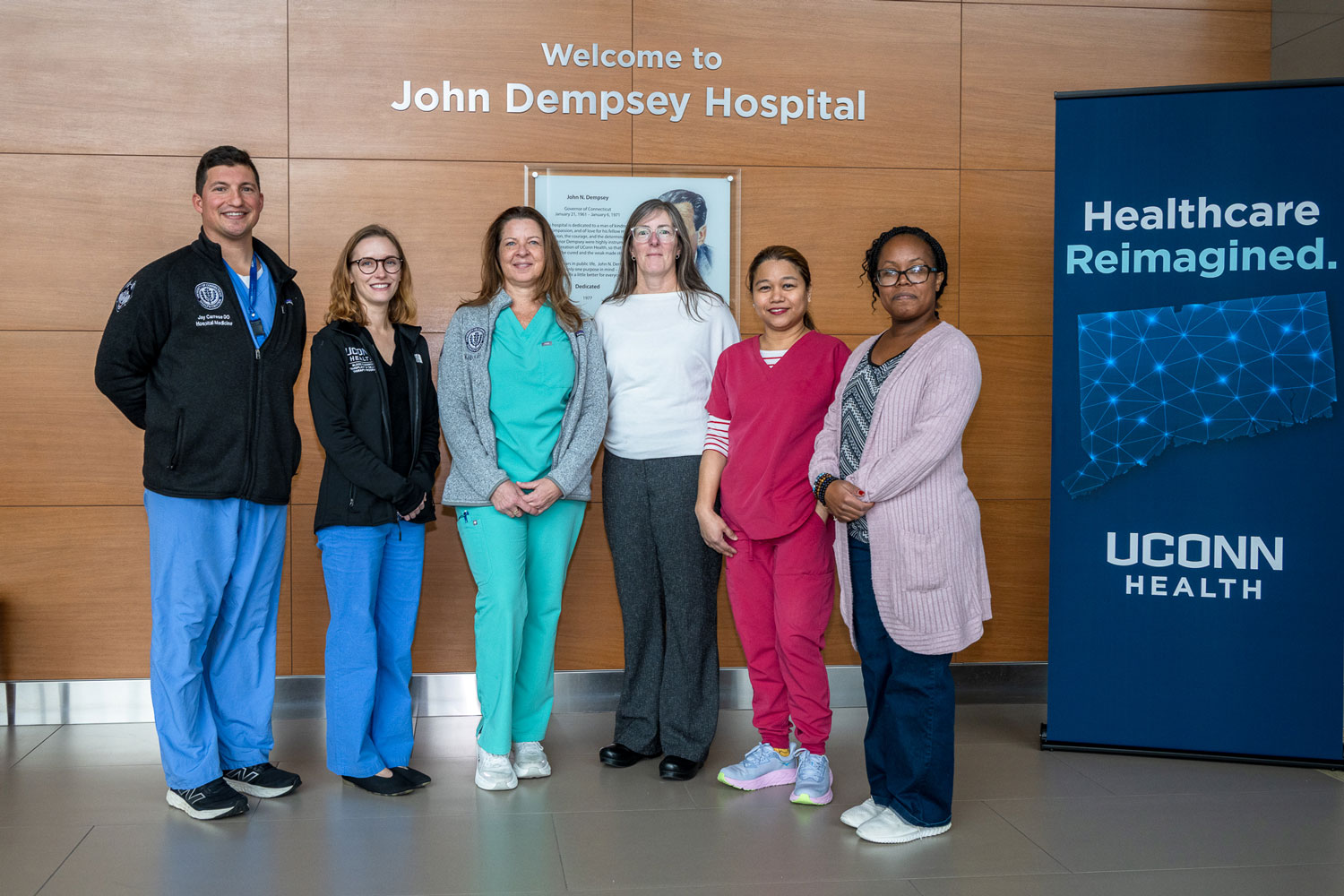The Provost’s Awards for Excellence in Community Engaged Scholarship (PAECES) recognize scholarly activities that integrate community engagement with research, creative work, and teaching. UConn faculty, staff, and students are honored with the annual PAECES recognition for doing intentional work that impacts society. The awards recognize scholarly activities led by members of the UConn community that are in collaboration with local, regional/state, national, or global communities to create conditions for the public good, culminating in sustainable change and dissemination of these activities.
The awardees for 2023 are:

Faculty, Research Distinguished. Nathaniel Rickles is a professor of Pharmacy Practice and Associate Dean for Admissions and Student Affairs for the School of Pharmacy. Rickles has shown a commitment to engaged scholarship through his work where he studies how interventions provided by pharmacists improve adherence to medication resulting in improved health outcomes for patients. Three examples include the Well-Integrated Screening and Evaluation for Woman Across the Nation (WISEWOMAN) project, promoting long-acting injectable antipsychotic program in pharmacies, and combating the opioid epidemic and stigma around substance abuse disorders. For over six years, the WISEWOMAN program has paired community pharmacists with low-income women in Connecticut to provide medication management services and action plan (in collaboration with primary care physicians) that has resulted in improvements in blood pressure management, medication knowledge and use of over 125 women. Moreover, Rickles co-developed a collaborative practice agreement between pharmacists and physicians allowing pharmacists to administer long-acting injectable antipsychotics for patients suffering schizophrenia or bipolar illnesses. This agreement eliminated barriers to access injectables, such as taking time off from work to schedule a medical appointment and all the inherent costs of medical visits and reduced income due to reduced work time, and dependence on daily oral alternatives. The result, thus far, is training over 60 pharmacists, and the delivery of 1200 injections with an adherence rate of over 90%. Rickles has also worked closely with the Connecticut Department of Addiction and Mental Health Services in training pharmacists, physicians, and different healthcare providers on opioid safety. Rickles developed online modules that allowed continuing education without specialists needing to leave their offices/pharmacies. Rickles scholarship has greatly expanded the services that pharmacists can provide to patients resulting in better health outcomes.

Faculty Research Emerging Award. Jennifer Mozeiko is an assistant professor in the Department of Speech, Language and Hearing. Mozeiko has used her scholar work to give voice to those aphasia caregivers. Mozeiko leads the Aphasia Group – a community of patients and their family and friends who share experiences weekly and receive group treatment from clinical faculty and students. The Aphasia groups meet in the UConn Storrs and Health campuses and supports over 30 families. Mozeiko documented the experiences of aphasia patient-caregivers in a book titled “Caring for Loved ones with Aphasia after Stroke: A Narrative Guide for Caretakers, Families, and Friends.” Mozeiko’s work with the Aphasia Group and its capstone book epitomize how engaged scholarship can be used to advance scholar work while also having a direct impact on society. It is anticipated that the book will have a positive impact on the readers who are facing similar challenges that can be profound and personal but difficult to measure.

Faculty Distinguished Instructor Award. Phoebe Godfrey is a professor in residence in the Department of Sociology. Godfrey’s passion for community-based learning is evident across all aspects of her scholarship and challenges students with transformative community-based experiences that challenges them to view social issues through multiple dimensions. In the past seven years, Godfrey has placed approximately 40 student interns in local non-profits. She integrates human dimensions in creative ways that expose students to unusual opportunities. Some examples include, as advisor of IDEA grant students she encouraged students to develop community gardens and examine the relationship between food and art— resulting on the Native American food ways mural in Willimantic. Similarly, students participating in the Artist in Protection and El Instituto created another mural on the Magic and Mystery of Latin American Food and Culture. She coordinated a project with Engineers Without Borders to create a rainwater capturing system and this led to the publication of a book entitled “Understanding Just Sustainabilities from Within: A Case Study of a Shared-Use Commercial Kitchen in Connecticut.” Godfrey is the co-founder of the Sustainable Community Food Systems (SCFS) minor funded in part by a $500,000 grant from the USDA to support student summer internships which creates opportunities for building greater community relationships. The SCFS minor is a valuable multidisciplinary program that incorporates the arts, nutritional and biological sciences, geography, sociology, and urban and community studies in creating new learning opportunities for students. Godfrey brings together the community’s needs to meet students’ desires and interests.

Faculty Emerging Instructor Award. Christopher Steele is an assistant professor of Medicine in the Division of General Internal Medicine in the School of Medicine and Undergraduate Medical Education/Graduate Medical Education (UME-GME) liaison, and founder of UConn Health Leaders. UConn Health Leaders is a community-based program founded three years ago with the goal of training the next generation of health care providers on how to address social determinants of health as they await medical care. Social determinants of health are, according to the World Health Organization, “the conditions in which people are born, grow, live, work, and age” and they account for 80% of individual’s health. To address health care needs, Steele developed a novel screening tool that not only trains the student on what questions to ask but populates community resources to address their unmet needs. This innovative program allows the student to gain impactful patient care experience but also receive training on how the social determinants of health contributes to health outcomes. UCHL has trained over 300 student volunteers and identified almost 6,000 patients with unmet needs. Steeles also provides health disparities training for new residents and fellows to achieve more equitable patient care. Steeles has demonstrated through his creativity that it is possible to educate students through co-curricular activities that are also focused on improving health outcomes of patients.

Undergraduate Student Award. Makayla Dawkins, Class of ‘23, was an Undergraduate Student in the Women, Gender, and Sexuality Studies program. Dawkins was nominated for PAECES by three separate individuals, which speaks to the impression she makes on the people that she works with. Dawkins consistently shows her commitment to community engagement through her academic and personal pursuits and extensive involvement in campus organizations. Dawkins held positions as a Research Assistant with both the Department of Psychology and the Department for the Women, Gender, and Sexuality Internship Program. Dawkins supported research by bringing to the forefront the stories of historically oppressed and marginalized groups and find connections between positive sexuality and mental health outcomes among women-identifying college students. In collaboration with the Soule Foundation, Dawkins interviewed students about LGBTQ inclusivity on campus and compiled this information with data gathered on campuses across the US. As a staff at the Rainbow Center, Dawkins created the Queer Sex Education series and co-founded the Gender Affirmative Closet. She held roundtable discussions with students about mental health and planned various educational events. Dawkins also served as an Ambassador for the UConn LEAD Program where she worked to increase college access for potential first-generation college students, like herself, from communities that are underserved and underrepresented in higher education. She also served on the Executive Board for Minority Health Matters, a health advocacy group focusing on the disparities facing those with minority identities in the healthcare system. In this role, Dawkins assisted with fundraising and participated in a campus-wide menstrual product drive which further inspired her to launch UConn’s Period Box Program which served to combat inadequate access to menstrual hygiene products for UConn students. Under Dawkins leadership at Alpha Kappa Alpha, the chapter took part in over 135 hours of community service, helped in initiatives aimed at alleviating childhood hunger, and built connections with the UConn recovery community to better serve members of the university community recovering from substance use disorders and other mental and behavioral health disorders. Dawkins personal interest in supporting the community is simply emblematic of excellence in community engaged work.



